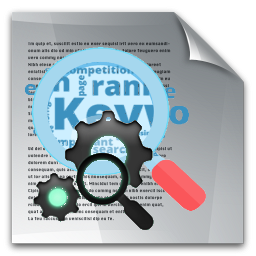| Id | 600 | |
| Author | Troscianko E.T. | |
| Title | Literary reading and eating disorders: Survey evidence of therapeutic help and harm | |
| Reference | Troscianko E.T.; Literary reading and eating disorders: Survey evidence of therapeutic help and harm ;Journal of Eating Disorders vol:6 issue: 1.0 page: |
|
| Keywords | Creative bibliotherapy; Eating disorders; Embodiment; Fiction-reading; Interpretation; Mental health; Self-help bibliotherapy |
|
| Link to article | https://www.scopus.com/inward/record.uri?eid=2-s2.0-85045413903&doi=10.1186%2fs40337-018-0191-5&partnerID=40&md5=a864e42f06dcab314dfe3fab40c1bf73 |
|
| Abstract | Background: There is growing evidence for the efficacy of self-help bibliotherapy as a treatment for eating disorders, although little understanding of how specific linguistic characteristics may enhance or constrain its effects. Meanwhile, creative bibliotherapy (the therapeutic use of fiction, poetry, or sometimes film, rather than self-help books) is widely practised, but even more poorly understood than the self-help variety: although a range of theoretical models exist, claims of the healing power of literature are far more commonly made than tested. Methods: An online survey including quantitative (forced-choice) and qualitative (free-response) items was designed and administered in collaboration with the charity Beat to investigate the connections between respondents reading habits and their mental health, with a focus on eating disorders, and attracted 885 respondents. Responses to two sequences of questions, exploring the differential effects of fiction about eating disorders versus respondents preferred genre of other fiction on the dimensions of mood, self-esteem, feelings about ones body, and diet and exercise habits, were analysed using a 2 × 2 repeat measures factorial ANOVA design for each of the four dependent variables. Results: Surprisingly, fiction about eating disorders was perceived by respondents as broadly detrimental to mood, self-esteem, feelings about their bodies, and diet and exercise habits, while respondents preferred genre of other fiction was experienced as beneficial to mood and broadly neutral on the other three dimensions. The free-response data added detail to these core findings, as well as suggesting numerous other possible effects and mechanisms, drawing attention to the roles of positive and negative feedback structures and of highly selective interpretive filtering, and highlighting the dangers of self-triggering: using books to deliberately exacerbate an eating disorder. Conclusions: The findings directly challenge existing theoretical models of creative-bibliotherapeutic mechanisms, which tend to insist on the importance of a close match between the readers and the protagonists situations. They point the way forward for a new programme of clinical research and practice by suggesting other ways to conceive of how embodied cognitive acts of textually cued interpretation may intervene in the psychopathology of an eating disorder - for good and for ill. © 2018 The Author(s). |
|
| Metodology | Technique |











